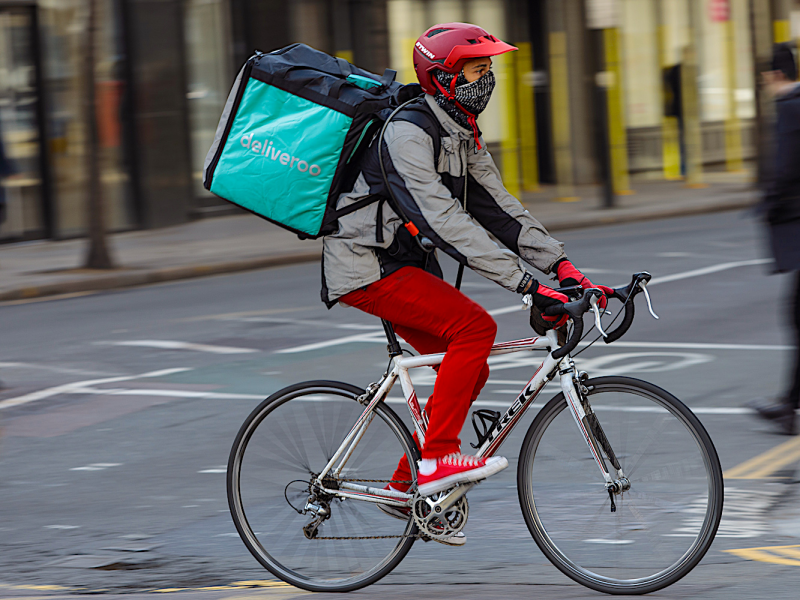- Deliveroo is calling for a “charter” that would give it more clarity about the rights it could offercontractors without risking their employment status.
- The food delivery startup wants to offer training, insurance, and other benefits without having to employ its delivery riders full time.
- A charter might also make some of Deliveroo’s court battles with riders go away.
- The company has warned that changing riders’ employment status might make meal delivery more expensive.
Food delivery service Deliveroo is proposing a “charter” that would outline what benefits an on-demand company could give its contractors without risking their self-employed status.
The startup wants clear guidance from the government about what security it can offer its “riders,” who deliver food orders for an hourly rate, without having to count them as full-time employees.
The charter, according to Deliveroo, would allow the company to offer more benefits to its riders as well as the flexibility of gig economy work.
It might also make the problem of expensive litigation over workers’ rights disappear at a time when the company is trying to trim its losses and maximise its growth, ahead of a possible public offering.
Deliveroo also warned last year that its business model would be at risk if it had to employ its delivery riders full time, and that meals would become more expensive.
Deliveroo would want the charter, sanctioned by the government, to outline some of the following benefits:
- Accident and third-party liability insurance.
- Funds for time off or holidays.
- Training in areas such as health and safety, educational qualification, or life skills.
Deliveroo is proposing the charter as a response to a government-commissioned report, the Taylor review, into gig economy work. It feeds into government consultations published on the back of the Taylor review.
Deliveroo and other on-demand platforms such as Uber have come under considerable fire in the UK for their heavy reliance on contracted workers. These drivers and riders often have to work long hours, but have little economic security thanks to their contractor status.
A court decided last year that Uber drivers qualified for worker status, meaning they're entitled to benefits such as sick pay and parental leave.

Deliveroo riders have had a harder time overturning their employment status, with an arbitration committee ruling last year that they are independent contractors. But last month a group of 50 riders represented by law firm Leigh Day won a settlement from Deliveroo after they claimed they were unlawfully denied minimum wage and paid holiday.
IWGB, a small new union that represents zero-contract and gig economy workers, said that Deliveroo's charter concept was misleading. President Mags Dewhurst said: "[Deliveroo] either fails to understand basic employment law or is trying to actively mislead the public. As has been established time and time again, under British law there is no trade-off between flexibility and worker rights. There is an employment status - 'limb b workers" - that allows for both and which Deliveroo has gone to great lengths to deny its riders, to the extent that we will now be facing the company in the High Court."
Deliveroo chief executive Will Shu said in a statement on Monday: "Five years ago I completed the first order for Deliveroo. I still make deliveries to this day, so I know how important it is that riders are given the security they deserve.
"I'm proud that Deliveroo has led the way in the on-demand economy by giving riders greater protection whilst they're out delivering amazing food. But we want to go further. That's why we're calling on the Government to allow companies like Deliveroo to offer riders more security without putting at risk the flexibility they value.
"Ending the trade off between flexibility and security will help ensure the UK's on-demand economy is fit for the future and benefits businesses, consumers and riders alike."

